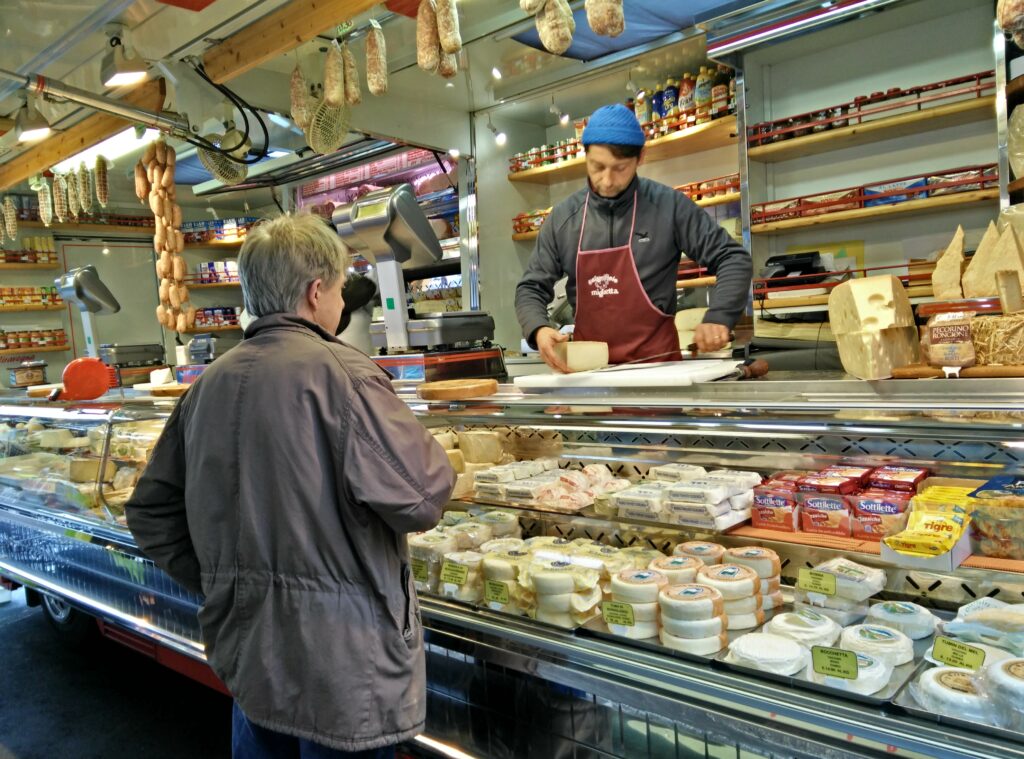Buying bread from a man in Brussels — he was six-foot-four and full of muscle. I said, “Do you speak-ah my language?” He just smiled and gave me a Vegemite sandwich.
Actually, we’ve never been to Brussels. Or eaten a Vegemite sandwich. But maybe you recognize those lyrics from Down Under by Men at Work, a song that encourages us to celebrate the heritage and quirkiness of each country, starting with the language.
No Need to be Fluent
Living like a local in Europe doesn’t mean being fluent in the local language. But it does mean you should at
least make an effort. One of the simplest ice-breakers between you and a local is learning how to ask
(in their language), “Do you speak English?” It’s also a way of showing respect rather than assuming everyone knows what we’re talking about when we open our mouths. Fortunately, even in remote towns, locals are likely to speak at least a little English, and just like that you’ve made a new acquaintance.
Guidebooks have sections on basic phrases like those. It’s a no-brainer to also learn please, thank you, yes, no, excuse me, where is it, how much is it, are you a CUBS fan . . . as well as numbers 1 to 10. Worst case you can use a translation app on your phone to communicate. If you haven’t learned the names of the local dishes, you can use a photo/translation app to decipher a menu, or Google an item to discover the Zarajos which sound delicious are actually marinated lamb intestines.
In the photo above, the Italian cheese monger in Alba is cutting me a nice hunk of a local cheese, Castelmagno, that I would not find in any other region. I learned that un etto is the term for “100 grams,” and therefore, due etti (plural) is 200 grams or roughly half a pound.
“Buongiorno!
Due etti di Castelmagno, per favore.
Grazie! Arrivederci.”
